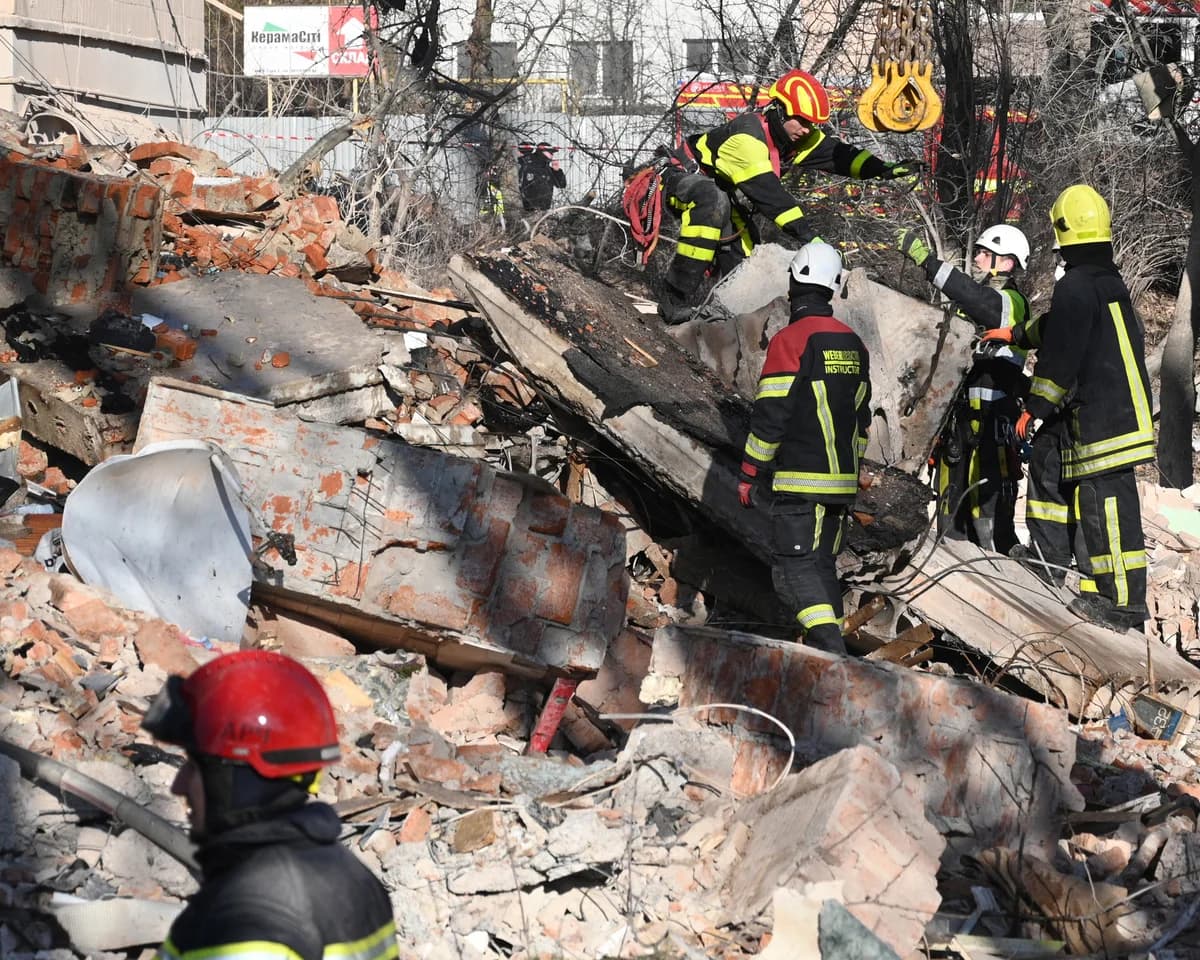We're loading the full news article for you. This includes the article content, images, author information, and related articles.
One of the deadliest attacks on the region since 2022 threatens to escalate the conflict, with potential ripple effects on global grain and fuel prices critical to Kenya's economy.

A massive Russian missile and drone barrage struck residential buildings in the western Ukrainian city of Ternopil early on Wednesday, 19 November 2025, killing at least 26 people, including three children, and wounding 93 others. The attack, one of the deadliest in a region far from the main frontlines, signals a significant escalation and raises concerns over renewed volatility in global markets that directly impact Kenyan households.
Ukrainian officials, including President Volodymyr Zelensky and Interior Minister Ihor Klymenko, confirmed that the strike targeted two multi-storey apartment blocks. In a statement on Wednesday, Klymenko detailed the devastation, noting that emergency crews were combing through the rubble for dozens of people still unaccounted for. President Zelensky condemned the assault, stating, "Every brazen attack against ordinary life shows that the pressure on Russia is insufficient." The attack was part of a wider aerial assault across Ukraine, with Russia launching 48 missiles and over 470 drones overnight, according to the Ukrainian Air Force.
The Ukrainian military reported that its air defences, including Western-supplied F-16 and Mirage-2000 jets, intercepted a majority of the projectiles. However, the strike on Ternopil, a city previously considered relatively safe, underscores the immense strain on Ukraine's defence capabilities. Analysis of the debris confirmed the use of advanced X-101 cruise missiles, launched from strategic bombers.
While geographically distant, the intensification of the conflict has direct and discernible consequences for Kenya. The nation's foreign policy, as articulated by President William Ruto in August 2025, remains anchored in the principles of the United Nations Charter, respecting national sovereignty and territorial integrity. However, a recent foreign policy paper from June 2025 indicated a shift towards a more neutral, non-aligned stance, aligning with the broader African position.
The most immediate impact is economic. Kenya relies on the Black Sea region for a significant portion of its wheat imports. According to a United Nations Development Programme report, disruptions in this supply chain have previously led to sharp increases in the price of bread and other essential food items, exacerbating the cost of living. Escalating attacks could again destabilize this trade, affecting food security across the Horn of Africa, a region already grappling with climate-related shocks. Furthermore, global energy and fertilizer prices are highly sensitive to the conflict's intensity, with past surges directly contributing to inflation and reduced agricultural output in Kenya.
The conflict has also revealed a complex human dimension for Kenya. In a statement on 12 November 2025, the government confirmed that over 200 Kenyan nationals are believed to be fighting for Russian forces, often recruited through deceptive employment offers. This development has prompted high-level diplomatic engagement, with President Ruto personally requesting the release of any detained Kenyans in a call with President Zelensky.
The attack occurred as President Zelensky arrived in Türkiye for talks with President Recep Tayyip Erdoğan aimed at reviving peace negotiations. The international community has condemned the strike, with Ukraine's Foreign Minister, Andrii Sybiha, stating the issue would be raised at a United Nations Security Council meeting on Thursday, 20 November 2025. The attack prompted neighbouring Poland and Romania to scramble fighter jets as a precautionary measure. Russia's Defence Ministry has claimed its strikes target military and energy infrastructure in retaliation for Ukrainian attacks on its territory. The African Union has previously expressed its extreme concern over the conflict, calling on all parties to respect international law and the sovereignty of Ukraine.
As rescue operations continue in Ternopil, the attack serves as a grim reminder of the war's heavy civilian toll and its far-reaching consequences, which extend from the frontlines in Eastern Europe to the economic stability of nations like Kenya.
Keep the conversation in one place—threads here stay linked to the story and in the forums.
Sign in to start a discussion
Start a conversation about this story and keep it linked here.
Other hot threads
E-sports and Gaming Community in Kenya
Active 9 months ago
The Role of Technology in Modern Agriculture (AgriTech)
Active 9 months ago
Popular Recreational Activities Across Counties
Active 9 months ago
Investing in Youth Sports Development Programs
Active 9 months ago